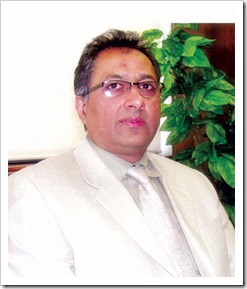Sikandar Naqi, the Senior Executive Vice President – Corporate
Development, PTCL, has joined Zong, we  have confirmed with sources who
are directly aware of this development.
have confirmed with sources who
are directly aware of this development.
Mr. Sikndar Naqi is reportedly not given any portfolio at Zong for now. Currently his position at company is said to be an advisor to CEO, which we anticipate to change soon.
This hints that Zong is likely to see more shifts in its management line in coming days.
Sikandar Naqi previously worked with CMPak when it had acquired Paktel from Millicom of Luxemburg.
Mr. Naqi is said to be the man behind the unveiling of CMPak and various other early initiatives taken by the company then.
Sikandar Naqi, before joining CMPak, had worked for InstaPhone as executive director.
He was recently the SEVP for Corporate Development at PTCL and was responsible for key functions at the company.
In a related news, Director Sales at Zong has reportedly resigned from his position.
 have confirmed with sources who
are directly aware of this development.
have confirmed with sources who
are directly aware of this development.
Mr. Sikndar Naqi is reportedly not given any portfolio at Zong for now. Currently his position at company is said to be an advisor to CEO, which we anticipate to change soon.
This hints that Zong is likely to see more shifts in its management line in coming days.
Sikandar Naqi previously worked with CMPak when it had acquired Paktel from Millicom of Luxemburg.
Mr. Naqi is said to be the man behind the unveiling of CMPak and various other early initiatives taken by the company then.
Sikandar Naqi, before joining CMPak, had worked for InstaPhone as executive director.
He was recently the SEVP for Corporate Development at PTCL and was responsible for key functions at the company.
In a related news, Director Sales at Zong has reportedly resigned from his position.

